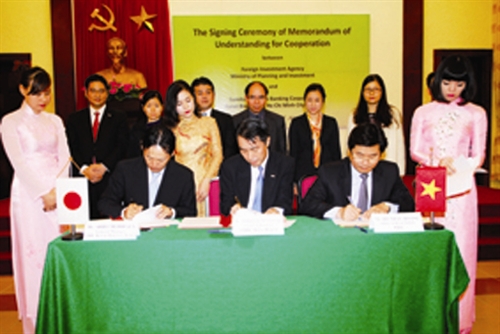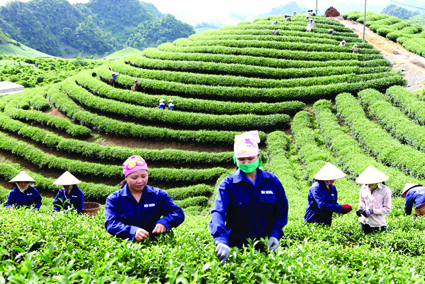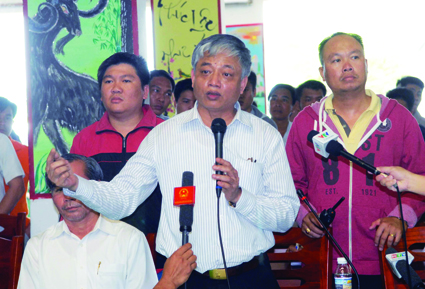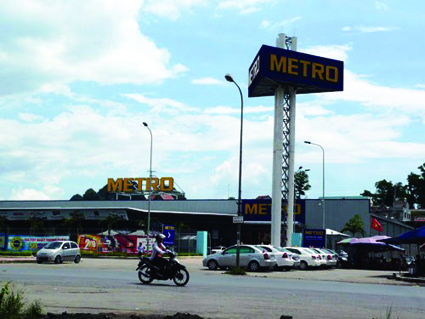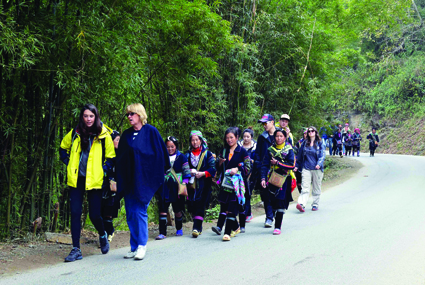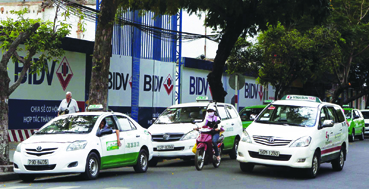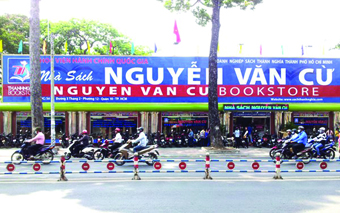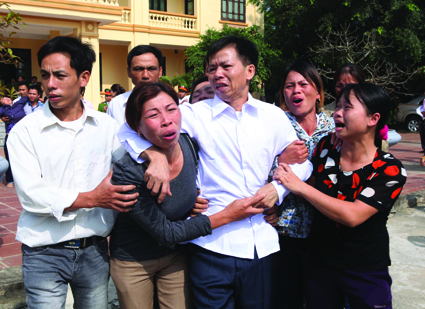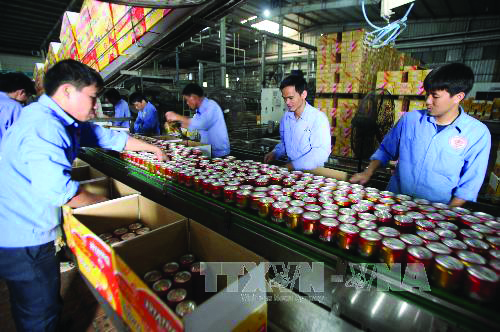A prolonged dispute over land compensation for an industrial park project in Hai Duong northern province once again raised public concern about the growing complexity of land-related complaints.
The peak of the dispute was a bulldozer collision incident causing injury to a female farmer, which happened on July 10.
According to local media, 54-year-old Le Thi Cham got injured after falling and colliding with a bulldozer that was trying to enter the construction site of the Cam Dien-Luong Dien industrial park when she was joining dozens of other farmers to protest the low compensation for their farmland recovered to build this industrial park.
These farmers, all coming from Cam Dien commune, Cam Giang district, had gathered for weeks at the project site, making heaps of rock and bamboo barriers to block the entrance to the construction site.
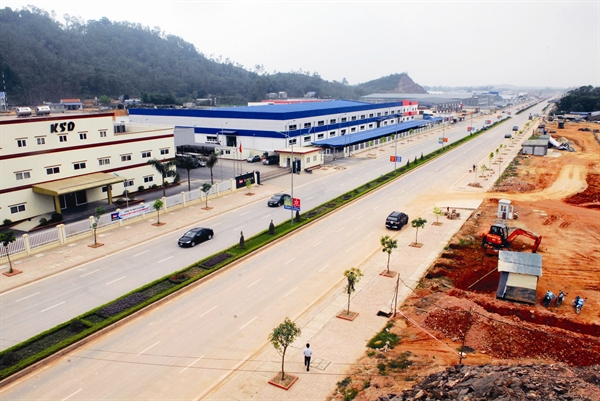 |
| A corner of efficiently operating Diem Thuy industrial park (Thai Nguyen province) __Photo: Danh Lam/VNA |
Licensed in 2008 with a total area of 208 hectares, the Cam Dien-Luong Dien industrial park was originally an investment of a local company. Due to difficulties in site clearance, only 150 hectares were handed over to the investor by September 2010 before the project was halted. Only in April this year was it transferred to the Vietnam-Singapore Industrial Park and Township Development Joint Stock Company (VSIP JSC) for continued construction.
To make way for the industrial park, over 1,400 households in the two communes of Cam Dien and Luong Dien had their farmland recovered. By now, 115 (8 percent) households from Cam Dien commune still refused to receive compensation money which they said was too low.
Le Thi Hieu from Cam Dien commune had over two hectares recovered and nearly one hectare to be cleared for the project. She told the Thanh Nien (Young People) online that the offered compensation of VND 65,000 (roughly USD 3) per square meter was too low for her six-member family to find a new livelihood after having all of their farmland recovered.
Luong Thi Hoi, also from Cam Dien, demanded land be returned for production or compensation be 10 times the offered as it should include not only compensation for land but also for yields lost over the past seven years, the Thanh Nien reported.
In addition to the compensation money, the province had decided to allocate additional farmland to support affected farmers, Nguyen Van Cong, vice chairman of Cam Giang District People’s Committee, told the Thanh Nien.
A compensation of almost VND 700,000 per square meter was unreasonably high and contrary to current regulations, he said.
The Cam Dien-Luong Dien industrial park was just one among of thousands of cases involving prolonged land-related disputes and complaints triggered mostly by failure to reach agreement on compensations between local authorities, investors and land users.
According to Deputy Minister of Natural Resources and Environment Chu Pham Ngoc Hien, land-related complaints and denunciations accounted for nearly 70 percent of the total lodged nationwide, saying this rate was as high as 98 percent at the Ministry of Natural Resources and Environment. Most complaints were about unreasonable land recovery, inadequate compensation and unused land after recovery for projects to build urban and trade centers and tourist sites.
Analysts attributed the situation to inconsistent and frequently changing land policies, resulting in different application of law in different places and at different times.
Over the past 10 years, on average a new decree was issued every year to regulate compensation and resettlement, former Deputy Minister of Natural Resources and Environment Dang Hung Vo told the Tin Tuc (News) daily, saying this was the reason behind rising complaints given differences between the new and previous policies.
Sharing this view, Dao Trung Chinh, deputy director of the General Department of Land Administration, said recent land laws sought to guarantee benefits for land users, providing compensation at market prices while under previous regulations, owners of recovered land received no or little compensation at state-set prices. The very inequality for those having land recovered previously had led to their protests, Chinh told the Tin Tuc.
Local officials agreed laws frequently changing toward better benefits for land users were attributable to their delay in returning land in the hope of receiving higher compensation.
Different local policies and law application were another cause, experts said, citing two adjacent households but administratively located in two different provinces, for example Hanoi and Vinh Phuc, received compensations times different.
Addressing a seminar reviewing the trial application of multi-stakeholder dialogue in settling complaints about land recovery in Vietnam, Nguyen Xuan Anh from the Vietnam Lawyers Association said public discontent was sparked by the fact that local authorities recovered land at low prices but sold it much higher without justifying such to their people.
Speaking at the seminar, Nguyen Doan Khanh, vice chairman of the Party’s Central Internal Affairs Commission, blamed on lack of publicity and transparency in land recovery and setting of land prices for compensation. In addition, the settlement of these complaints often favored public interests at the expense of private interests, he said.
To please investors, many localities even broke rules to allow construction in contravention of planning, triggering complaints in affected areas, Deputy Minister Hien said, adding some projects even failed to adopt resettlement plans for relocating residents.
Hien acknowledged officials in charge of settling complaints at the district level remain insufficient and incompetent while local leaders paid inadequate attention to the complaint settlement, sending people to lodge complaints at higher level.
Former Deputy Minister Vo stressed compensation and resettlement policies must ensure owners of recovered land enjoy better or at least similar conditions than before the land recovery. The land law should ensure independence and impartiality in land price determination, which was crucial for people’s willingness to land recovery, Vo said, citing the 2013 Land Law introducing the land price appraisal council chaired by the provincial-level People’s Committee chairperson could hardly ensure objectivity.
He suggested a mechanism of interest sharing between investors and land owners to address the problem.
The land recovery should be discussed by affected land owners who should be allowed to join in making compensation plans right at the beginning and thus could reflect potential problems for the State and investors to settle. The involvement of affected stakeholders would help reduce complaints and lawsuits later, he said.
Early this year, the Prime Minister issued a decision that limits recovery of farmland for other purposes. The decision says if farmers have to hand over land for defense, security or some public purpose, they will be entitled to support policies to ensure their legitimate interests.- (VLLF)
